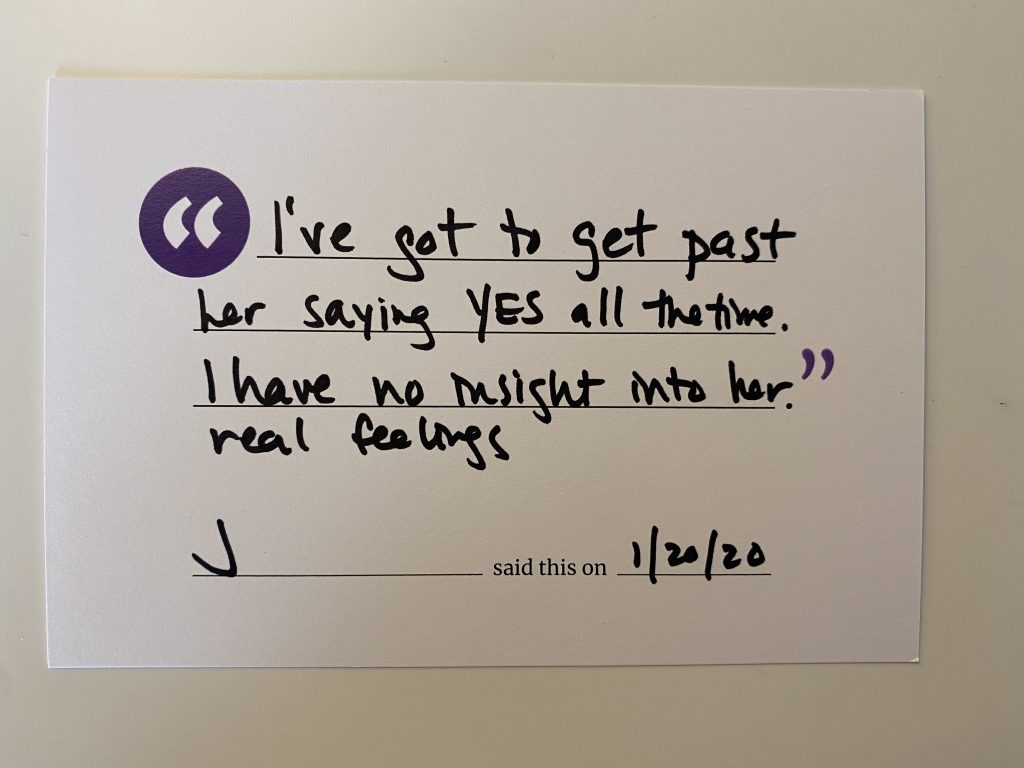
Dear Plucky,
I have a hard time saying no. I was raised to be a people pleaser and to believe that when people give me a task, I should say yes and do 110%. But I know that this good work ethic means sometimes I’m not good to myself…
How do I stop saying yes?
– Very Nice Person
—-
Dear VNP:
First of all, GOOD JOB recognizing this situation. Saying yes to opportunities and responsibilities and life is a great trait to have – but if you don’t learn to counterbalance this instinct, you will end up:
- Burned out
- Very rude on Twitter
- Mad at the world for not protecting you from yourself
None of these sound so hot, right?
To answer, I want to say a few things to shake you forward in this journey:
When you don’t provide a boundary, you add a weight to everyone else’s shoulders.
If you’re the person who says yes all the time, we have never heard you say no. And since there is not a person on this earth who has not wanted to decline things at some point, we start wondering: when is it a real yes? When is it a fake yes?
In short, we stop trusting you.
In a total absence of hearing about your limits, we don’t believe you don’t have them – instead, we spend lots of time guessing what they are. And this is a heavy weight to bear, the prediction of someone else’s emotional state. It is much easier if you could just tell us when you’ve had enough – whether that’s too much work assigned to you or too many nights out in a row when you’d rather hole up and watch TV.
Guessing at your Nos leads us to greater inefficiency, wasted time and much frustration because:
Saying no helps us all work smarter.
There’s a difference between working harder and working smarter – and the ability to truly make yes/no decisions will get you there.
I deeply appreciate where you’re coming from when you say you want to do 110%. But what if you could do 110% in 75% of the time because you’ve asked clarifying questions? To make sure the work you’re taking on is the right work? What if you have wisdom to contribute to the project at-hand that would change its path to avoid pitfalls that you know exist?
You, my friend, are not a factory robot. You are allowed to take in data, experiment and come out at the end of the day with more work accomplished in less time.
Saying no can challenge broken processes we’ve relied on for too long.
Saying no can help find creative ways to solve a problem.
Saying no can jump-start an entirely new way of working together, one that prioritizes smart work over long work.
If you’re going to fail, fail for reasons.
Here is what boring failure looks like:
I took on too much work.
Oops I took on too much work again.
Oh man, I took on too much work AGAIN.
SNOOZEFEST. THIS IS A BAD TIME FOR ALL INVOLVED.
If you’re going to fail, imagine failing THE BADASS WAY:
I took on this extra project and it was too much so I had to ask for help. (In asking for help, someone stepped forward and now they want to keep helping – can we edit their job description and delegate this as an ongoing assignment? #careerpath)
I told this client that our rates were 3x what we normally charge… and they didn’t take our deal. They negotiated me down to 2x. (!!!!)
I spoke publicly for the first time at a conference. Only 4 people came. But those 4 people are BOUGHT IN!
VNP? We have long lives ahead of us. I know how hard it is to not say yes because you want to please and convince the world that it’s better than they think. But I also know that this problem is going to be a ceiling that holds you way back – personally, professionally and emotionally – until you solve it.
Practice the nos. Keep a tally mark system. Aim for 1,000; reward yourself for every 5. It is hard work to assert reality on everyone else’s expectation but reality is what you’ve got to work with.
Say no. Say it loud. And then message me and tell me how it went.
xo Jen
P.S. I will always be proud of your efforts. Trying is how we change ourselves.